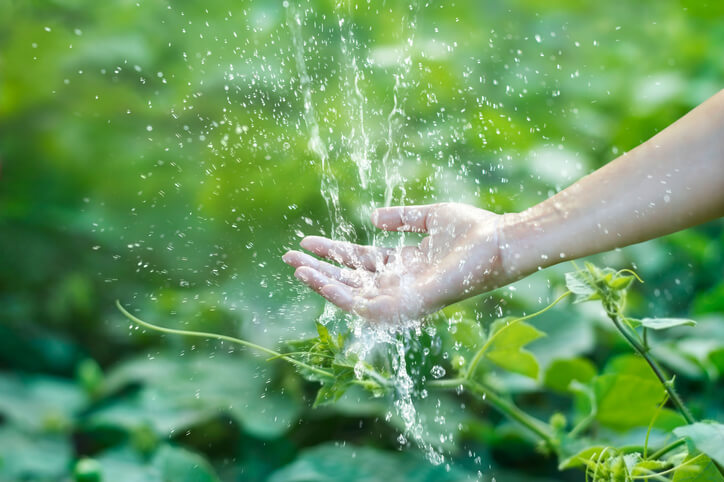Water is essential to human existence — water comprises 60 percent of the adult body, and every living cell in the body needs water to remain alive. Without clean drinking water, a person will survive just 21 days. However, when it comes to health, not all water is equally beneficial. Obviously, everyone knows about the differences between freshwater and saltwater, and not to drink the latter! But how about the tap water that flows through the faucets and spigots in our homes and businesses? Water contamination poses serious health risks. But the question is: how to know if tap water is contaminated? Our master plumbers outline everything you need to know about safe and unsafe drinking water in Gainesville.
Gainesville Water Quality
We are fortunate in Gainesville to have the Floridan Aquifer as our principal water supply. This massive underground limestone aquifer provides more than 2.5 billion gallons of water every day, making it one of the world’s most productive sources of drinking water. A good amount of the water harvested from the aquifer (26 million gallons per day) is directed to the Murphree Water Treatment Plant — rated the “Best Water Treatment Plant in Florida” by the American Water Works Association — where it is treated and quality tested before being distributed by GRU water services to some 65,000 customers in Gainesville and surrounding areas of North Florida.
But as our plumbers in Gainesville know all too well, just because the water supply is clean doesn’t mean there can’t still be problems with tap water. From lead soldering on drinking water service lines to above-ground pollution, here are common water contaminants to beware of.
Sources Of Water Contaminants Based On Type Of Water Supply
Where tap water comes from determines which contamination risks are likeliest. For example, a business drawing water from a central city source (like GRU) will contend with different contaminants than a rural homeowner who manages a private backyard well. Then again, some threats to water quality, such as rusty plumbing, are ubiquitous for practically everyone.

City Water
Gainesville is the gold standard for how a city should harvest water. Water from the Floridan Aquifer is already close to potable. As water scientists with the University of Florida’s Clean Water Campaign explain, the porous sediment layers above the aquifer filter out most of the contaminants. However, they also concede that sinkholes in Alachua County can allow pollutants to reach the water supply. But these risks are mitigated long before the water gets into people’s’ cups. Before aquifer water is distributed to GRU customers, it goes through a seven-step treatment process. This ensures the water meets all state and federal standards for quality. Then, drinking water at the Murphree Water Treatment Plant is re-tested hourly to make sure it meets all standards for cleanliness.
Although Gainesville city water is mostly high in quality, many people still confront problems with their tap water contamination due to plumbing issues like outdated water supply lines.
Lead
Older plumbing, especially pipes installed before the 1980s, may have copper water supply lines that are soldered with lead, while some homes have entire pipes made of lead. As a toxic contaminant, lead in drinking water poses serious health risks, such as weakened immune systems, birth defects, and even death.
Minerals
Minerals are sometimes added to bottled water to improve its taste. However, ingesting a surplus of minerals — such as the iron that forms in rusted pipes, or the calcium that builds up in poorly maintained water heaters and faucets — can cause upset stomachs and intense feelings of illness.
Private Wells
Most people get drinking water from the city although some people elect for plastic bottles from the grocery store, an at-home filter, or a water delivery service. But some residents of Gainesville and the smaller towns in Alachua County (such as Alachua, Starke, or High Springs) use private in-ground water wells.
A water well that was drilled incorrectly, lacks a watertight casing or is dug shallower than six meters (about 20 feet) below ground level is considered an unprotected water source. This means the water supply is vulnerable to surface-level contaminants, many of which stem from agricultural activities in North Florida, such as herbicides and pesticides, nitrates from fertilizer, and bacteria, including E. coli, from animal waste. These are in addition to the lead, minerals, and other plumbing-related contaminants that can derive from old or neglected pipes and fixtures.
Call Our Plumbers For A Water Supply Line & Plumbing Inspection
If your last appointment with a plumber was years or even decades ago, it’s time to schedule plumbing services. Especially if you drink tap water in North Florida, you’d be wise to have a plumbing inspection done to make sure all pipes, fixtures, and other components are clean, efficient, and in-line with current standards for health and water quality. Even if you don’t consume tap water, you still bathe and brush your teeth with it. Call Quality Plumbing of Gainesville, Inc. so we can make sure your water is safe for your family or customers.
